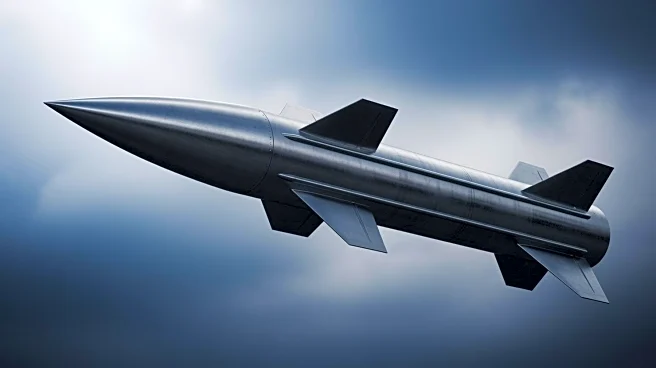What's Happening?
President Trump has publicly denied reports suggesting that the United States had lifted restrictions on Ukraine's use of long-range missiles to target locations within Russia. The denial came after The Wall
Street Journal reported that Washington's decision would allow Kyiv greater freedom in conducting strikes inside Russian territory. Trump refuted these claims on his Truth Social platform, labeling the story as 'fake news' and asserting that the U.S. has no involvement with the missiles or Ukraine's actions with them. The controversy follows Ukraine's recent use of a British-supplied Storm Shadow cruise missile to strike a facility in Bryansk, Russia. The Wall Street Journal indicated that a shift in authority within the Pentagon, transferring oversight from Defense Secretary Pete Hegseth to General Alexus Grynkewich, might have facilitated the change. Grynkewich, who serves as NATO commander, has previously expressed confidence in Ukraine's ability to win the war against Russia.
Why It's Important?
The denial by President Trump is significant as it addresses concerns about the U.S.'s role in escalating military actions between Ukraine and Russia. If the restrictions were indeed lifted, it could signal a shift in U.S. policy towards a more aggressive stance against Russia, potentially impacting diplomatic relations and military strategies. The use of long-range missiles by Ukraine could lead to increased tensions and retaliatory actions from Russia, affecting regional stability. The situation also highlights the complexities of international military support and the implications of U.S. involvement in foreign conflicts. Stakeholders such as NATO allies, defense contractors, and geopolitical analysts are closely monitoring these developments for potential shifts in policy and strategy.
What's Next?
The ongoing situation may lead to further diplomatic discussions and strategic evaluations by the U.S. and its allies. President Trump's denial suggests that any changes in military support or policy will be scrutinized and potentially contested. The Pentagon's internal processes and authority shifts could be subject to review, especially concerning the approval of cross-border strikes involving U.S. or allied missiles. Ukraine's military strategy and its reliance on Western support will continue to be pivotal in its conflict with Russia. Observers anticipate potential reactions from Russia, which may include diplomatic protests or military countermeasures.
Beyond the Headlines
The broader implications of this development touch on ethical and legal dimensions of international military support. The use of long-range missiles raises questions about the legality of cross-border strikes and the potential for civilian casualties. The shift in U.S. policy, if confirmed, could influence global perceptions of American military involvement and its commitment to international law. Additionally, the situation underscores the importance of accurate reporting and the impact of misinformation in shaping public and diplomatic discourse.











